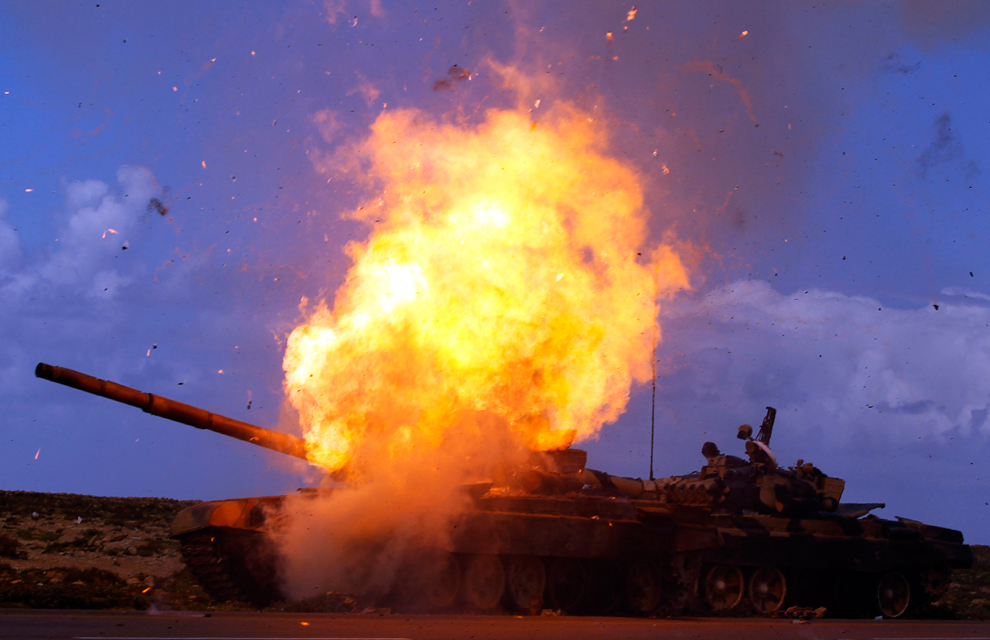
“
Gaddafi is crazy and evil; obviously, he wasn’t going to listen to our advice about democracy. The world would be fortunate to be rid of him. But war in Libya is justifiable only if we are going to hold compliant dictators to the same standard we set for defiant ones. If not, then please spare us all the homilies about universal rights and freedoms. We’ll know this isn’t about justice, it’s about power.” With an eye toward the crackdowns in
Yemen and
Bahrain, the WP’s Eugene Robinson
wonders, why, exactly, we’re getting involved in Libya. (Pic via
Boston’s Big Picture.)
For a counterpoint, Juan Cole argues why the Left should back the current military action: “If we just don’t care if the people of Benghazi are subjected to murder and repression on a vast scale, we aren’t people of the Left. We should avoid making ‘foreign intervention’ an absolute taboo the way the Right makes abortion an absolute taboo if doing so makes us heartless (inflexible a priori positions often lead to heartlessness).“
And, to complete the trifecta, here’s the president explaining his reasoning for intervention: “Left unchecked, we have every reason to believe that Qaddafi would commit atrocities against his people. Many thousands could die. A humanitarian crisis would ensue. The entire region could be destabilized, endangering many of our allies and partners. The calls of the Libyan people for help would go unanswered. The democratic values that we stand for would be overrun. Moreover, the words of the international community would be rendered hollow.“
I get the arguments in favor of military action (and, in terms of diplomacy, I get that we also seem to be following the lead of France and England this time — After all, they’ve backed our sketchy plays in the past.) But, since we’re already well-engaged at this point, I’ll just say that (1) my own view of this Libya action leans toward Robinson’s, (2) the Congress-skipping precedent here is yet another extremely dubious call by our purported constitutional-scholar-in-chief, (3) I’m not seeing how getting involved in yet another war in the Middle East/North Africa, while rather obviously ignoring other festering situations in the region, wins Arab hearts and minds, and (4) it’s funny how 99.44% of the Deficit Peacocks in this town completely clam up when it’s time to rain down some million-dollar-a-head Freedom Bombs.
But the die is cast now, so let’s hope we get in and out of this as quickly as the president intimated we would. Oh, hey, look…mission creep. Now, who could’ve expected that?

